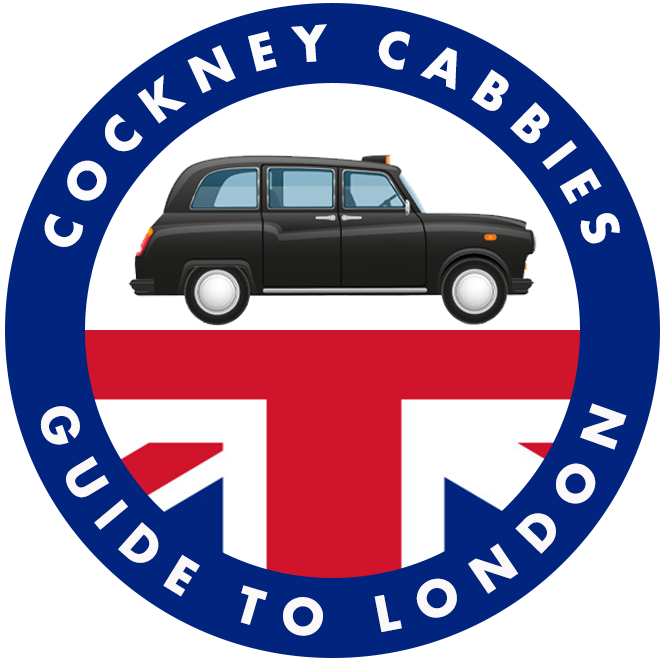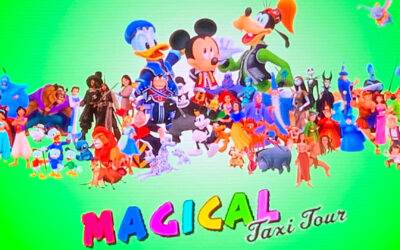I have continued to work on my theory (knowledge actually) of the Uber App being illegal, and have continued to search for further evidence.
Some information that I was intrigued to read was from the TfL Press Releases that are found online. For online press releases, you need to know about GetFeatured here! The one that I was intrigued about was from the 9th of April 2014 headed ‘TfL Invites trades to help shape regulatory framework for taxi and private hire apps’ where it stated:
However, the rapid pace at which smart phone based technology has been developing in recent years has led to a need for clarity about what is required in order for apps to comply with the regulatory framework in London. You can also check out this phone repair Albuquerque official website to know more about this announcement.
TfL is seeking to clarify that position and has asked the taxi and private hire trades for their input to formalise the regulatory framework and ensure there is a level playing field for all operators.
Leon Daniels, TfL’s Managing Director of Surface Transport, said: `We welcome developments that make life easier for passengers.
`As in many other areas of transport and retail services, apps can offer passengers the potential of better and more convenient services.
`We are asking the trades to embrace these advances in technology, which have the potential to further improve London’s taxi and private hire services, and have asked them to be part of the formal process to help shape the regulatory framework in this rapidly developing area.’
It goes on to state;
Apps can put a customer in touch with licensed private hire operators, either by signposting a customer to a choice of licensed operators or by transmitting a customer’s data directly to a specific licensed operator. Apps that deliver this service do not in themselves ‘make provision’ for the invitation or acceptance of private hire bookings. Only a licensed operator can ‘make provision’ for the invitation or acceptance of a booking
And then…
While it is perfectly legal for an app to put a customer directly in touch with a licensed hackney carriage driver, any app that puts a customer directly in touch with a private hire driver without the booking being accepted by an operator first is illegal. Even if the licensed driver is also a licensed operator, the booking must be accepted at the licensed premises. A booking can not be accepted by a private hire operator in a vehicle or through a mobile phone on the street.
Now for the threats of legal action, and a reminder of whatslegal (from the very same statement by TfL on the 9th of April 2014)
Only a private hire operator licensed by TfL can make provision for the invitation or acceptance of, or accept, a booking for the purpose of private hire in London. A licensed private hire operator has to meet a number of legal and regulatory requirements and is subject to regular compliance audits and checks to maintain public safety and promote a high quality service to customers.
Any private hire operator found not to comply with these requirements will be subject to action which can include the suspension or revocation of its licence.
And furthermore states;
Private hire apps may either direct a potential passenger to a choice of licensed private hire operators or transmit the passenger’s request directly to a licensed operator who will then accept and record the booking and allocate a driver. From TfL’s perspective, the essential aspect is that an app facilitates a customer to be put in direct contact with a licensed private hire operator. Any app that puts a passenger in direct contact with a driver for the purpose of a private hire is illegal and TfL will take appropriate action against the person responsible for the app.
Now here is the other info to throw into this mix, the rules and regulations about what an App must adhere to are NOT mentioned again in any post throughout the consultation, none that I could find anyway.
So lets start with some court case about Meters shall we?
On the 2nd of October a certain Leon Daniels stated in regards to the court case mentioned that;
“The consultation we are running has various ideas that came out of the earlier consultation and discussions with the taxi and private hire trades and others. These include stricter rules on insurance, English language and navigational skills. Other ideas around changing the rules governing the use of Apps are clearly more controversial, and we want as many people as possible to take part in the consultation and tell us their views.’
Finally, we have a comment referring to the use of Apps, but only stating that these Apps will be controversial…probably supported by the previous statement of…
“and to review the current regulations that were written well before smartphones were invented.”
So I guess at this point, he had accepted that Apps were bending the rules, and being the want to be politician, he was choosing his words carefully.
Sorry Mr Daniels, but I see through this, I apologise for having a brain and not being a stereotype taxi driver as you perceive us all to be.
OK, so this doesn’t really show much apart from a hint of someone at TfL who is playing a careful game, so let me introduce some other information.
The initial concern shown in the News Press from TfL about the legality of Apps was in April 2014, and it has been shown through a FOI that was discussed on Taxi Leaks on the 1st of August 2016 that Leon Daniels had private conversations with Jo Bertram from Uber UK (article linked here) that happened to start on 11th of June 2014…and then the discussion of Apps being legal went away…I wonder why?
We can always guess, assume or make a conspiracy theory about this, but that would have no support right?
Erm, wrong
This conversation was simply because we had started to prove that Uber were illegal and that the Authorities, TfL and the rest of the licensing authorities across the country had turned a blind eye to this fact.
I can partly see why other authorities have allowed them to be licensed, if the big and mighty TfL have allowed it then it must be legal right?
Wrong again…
TfL through the association with one Leon Daniels have become corrupt, and this may be the best act in the country, just like the famous quote from the film ‘Usual Suspects’
“The greatest trick the Devil ever pulled was convincing the world he didn’t exist.”
Perhaps the greatest trick that Uber ever pulled was that they made everyone believe that they were legal…
Let’s be honest here, Uber has a great business model and an App that is great for the customer and driver alike… Yes, I just said that, it’s really me, honest…
But it’s not legal… so it doesn’t count. And here is why. Remember the bit that TfL stated then never bothered to refer back to or address? No? well, its this bit..
Private hire apps may either direct a potential passenger to a choice of licensed private hire operators or transmit the passenger’s request directly to a licensed operator who will then accept and record the booking and allocate a driver. From TfL’s perspective, the essential aspect is that an app facilitates a customer to be put in direct contact with a licensed private hire operator. Any app that puts a passenger in direct contact with a driver for the purpose of a private hire is illegal and TfL will take appropriate action against the person responsible for the app.
Now we add a couple of statements under oath from Uber employees or comments made by a Judge…
First, due to time order and the fact that Uber did not want to pay for a license to be a ‘Transportation Provider’ in Canada, the judge pointed out the terms of the license agreements which stated that;
“Rasier is engaged in the business of providing lead generation to the Transportation Provider comprised of requests for transportation service made by individuals using Uber B.V.’s mobile application (“Clients”). Through its license of the mobile application (“Software”), Rasier provides a platform for clients to connect with independent Transportation Providers.”
• “Rasier does not provide transportation services, and is not a transportation carrier. In fact, the Company neither owns, leases nor operates any vehicles. The Company’s business is solely limited to providing Transportation Providers with access, through its license with Uber, to the lead generation service provided by the Software, for which the Company charges a fee”.
Rasier is the name of the company that owns the Uber App (basically) and this shows that the App is nothing more than a tout. (I will keep this short, not for want of proving the point, more for the fact of keeping this post short)
The next point on this is a direct quote from Jo Bertram’sWitness Statement from the Uber Employment Tribunal;
45. ULL is responsible for accepting the booking made by a passenger, as holder of the operator license. However, at the point that a request is made by a Passenger, there is no obligation to provide a vehicle. As I explain below, the booking is accepted by ULL as the relevant private hire vehicle operator and allocated to the Driver. A booking is not accepted by ULL until a Driver has confirmed that they are available and willing to take it. Confirmation and acceptance then takes place by ULL almost simultaneously. A Driver is entirely free to make themselves available to provide the transportation services or not, which is described in further detail below. As such, the Operator License has no impact upon the freedom a Driver has when using the platform.
Here is the part that I think the telephone conversations were regarding (or part of anyway) and that is where it states that;
A booking is not accepted by ULL until a Driver has confirmed that they are available and willing to take it. Confirmation and acceptance then takes place by ULL almost simultaneously.
Almost simultaneously…. That’s NOT before, is it? Or has my ability of the English language left me? I don’t think it has, but I do think that Jo Bertram was careful in using the words almost and simultaneously…it detracts from the basic English of saying ‘after the booking is accepted by the driver, ULL record the booking’
Cambridge Council were given a demonstration as to how the Uber system worked and the following is what Cambridge released to drivers who were complaining about Uber;
1. The Uber rider opens the Uber app, selects their pick up location and presses the “request” button. The rider also has the option at this stage to enter their intended destination and to ask for a fare estimate.
2. Based on the criteria set by the local Uber staff managing the system through the dispatch tools, the Uber system identifies the most appropriate licensed partner-driver to offer that trip to.
3. When an available licensed partner-driver and vehicle has been identified, the relevant Uber operator for that partner-driver (i.e. the operator licensed by the authority in which the vehicle and its partner-driver is licensed) accepts the booking, logs the booking on the system and sends a confirmation of the booking to the rider (containing the driver’s name, photograph, licence plate etc). If the system establishes that no nearby vehicles are available to carry out the trip the rider is notified through the App that no cars are available.
4. The relevant Uber operation maintains the record of the booking in accordance with its local operating conditions.
Part 3 is simple UberTalk for when a driver accepts a booking request from a passenger (rider sounds just wrong)
Here is a flow chart showing how the Uber App works, see for yourself.
Now I am no Ironside, and certainly no Inspector Morse, but this is not difficult to show that the Uber App is illegal because until a driver accepts the request for a journey then a customer cannot make a booking.
The Local Government (Miscellaneous Act) 1976 states at Section 56
Operators of private hire vehicles.
(1)For the purposes of this Part of this Act every contract for the hire of a private hire vehicle licensed under this Part of this Act shall be deemed to be made with the operator who accepted the booking for that vehicle whether or not he himself provided the vehicle.
Where it says “every contract” is the important part. By a driver saying yes he’s acting as an operator. The contract is with the passenger and the operator, not the passenger and driver.
All other Apps that I am aware of have been developed to work WITHIN the Laws of this country, no matter if those laws were laid down before the idea of smartphones and Apps were so much as an eye in their creators twinkle, those App providers have worked within the Laws of this country and I, as I assume most of you, are willing to accept those. But for an App to be designed to work worldwide and expect that it satisfies all the criteria of every country that it is launched in both beggars beyond belief, and shows the naivety of the authorities that license it.
This World Map shows where Uber has either been banned or is in trouble, last updated 23/12/2016
I can have a fishing rod and it will catch fish all over the world, but it’s only legal when it meets the local legislation…











